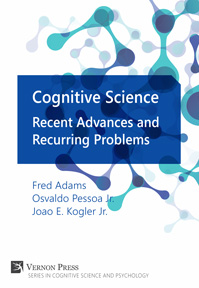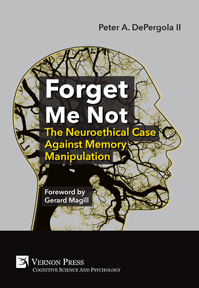The Neurobiology-Psychotherapy-Pharmacology Intervention Triangle
The need for common sense in 21st century mental health
João G. Pereira, Jorge Gonçalves, Valeria Bizzari (Eds.)
by Jaakko Seikkula (University of Jyväskylä, Finland), Adelinda Araújo Candeias (University of Évora, Portugal), Silvia Almeida (Champalimaud Research and Clinical Centre, Portugal), Claudinei Eduardo Biazoli (Universidade Federal do ABC, Brazil), Valeria Bizzari (Clinic for General Psychiatry, University of Heidelberg, Germany), Liberata Borralho (University of Evora, Portugal), Inês Pinto Calisto (Center for Research in Education and Psychology, University of Evora, Portugal), Chloe Campbell (Research Department of Clinical, Educational and Health Psychology, University College London, UK), Birgitta Alakare (Health District of Länsi-Pohja, Finland), Giulio Caselli (Policlinico Gemelli, Rome; Catholic University of Sacro Cuore, Rome, Italy), Mário David (CINTRA; Groupanalyst; Centro Hospitalar Psiquiátrico de Lisboa; Sociedade Portuguesa da Grupanálise, Portugal), Martin Debbané (Developmental Clinical Psychology Research Unit, Faculty of Psychology and Educational Sciences, University of Geneva, Switzerland; University College London, UK), Ana Carolina Florence (State University São Paulo, Brazil), Peter Fonagy (Anna Freud National Center for Children and Families, London, UCL; Research Department of Clinical, Educational and Health Psychology, University College London, UK), Inês Gomes (Centro de Recuperação de Menores D. Manuel Tridade Salgueiro, Portugal), Jaime Grácio (Nova Medical School, Portugal), Daniel Guerra , João Albuquerque (Centro de Recuperação de Menores D. Manuel Tridade Salgueiro, Portugal), Pedro Valente (Centro de Recuperação de Menores D. Manuel Trindade Salgueiro, Portugal), Anabela Janeco (Centro de Recuperação de Menores D. Manuel Tridade Salgueiro, Portugal), Victor Amorim Rodrigues (ISPA University Institute, Portugal), Silvio Yasui (State University of São Paulo, Brazil), Tobias Nolte (Wellcome Trust Center for Neuroimaging, University College London, UK; Anna Freud National Centre for Children and Families, London, UK), Albino J. Oliveira-Maia (Neuropscyhiatric unit, Champalimaud Research and Clinical Centre, Lisbon, Portugal), Dora Pereira (University of Madeira, Portugal), João G. Pereira (Casa de Alba, Romão de Sousa Foundation, Portugal), António Portelada (University of Évora, Portugal), Célia Sales (University of Porto, Portugal), Patrícia Santos (Centro de Recuperação de Menores D. Manuel Trindade Salgueiro, Portugal), Robert Hinshelwood (Univer British Psychoanalytical Society; Royal College of Psychiatrists, UK), Elodie Toffel (University of Geneva, Switzerland), Josefa Ros Velasco (Harvard University), Natália Andrade (Centro de Recuperação de Menores D. Manuel Trindade Salgueiro, Portugal), Pedro Amaro (Centro de Recuperação de Menores D. Manuel Trindade Salgueiro, Portugal), Alexandre Gomes (Faro District Hospital, Portugal), Liliana Pacheco (Centro de Recuperação de Menores D. Manuel Trindade Salgueiro, Portugal), Rex Haigh (Nottingham University’s School of Sociology and Social Policy, UK)
Purchase this book
(click here to change currency)
Without pretensions to the theory of everything and to the supreme algorithm, this book presents a sensible rational and a healthy effort to integrate current knowledge and to open the horizons of research in the territory-process of mental health and mental illness, its origin and its destiny, mode of understanding and art-science in response to their impasses and challenges.
By proposing a "Triangle Intervention," the self-regulated and autopoietic dynamic system of the human relationship is conceived and managed by reason of the imbricated sequential development and with frequent and fertile “loops” in the course of biogenic, sociogenic, and idiogenic factors-vectors , giving special emphasis to the latter because they are dependent on the neural networks of representation and generation - memory and imagination, nostalgy and hope, history and creativity - of the subject and agent of action. As if Man was not the first constructor of the Universe of Culture; and the investigator-therapist, his most lucid interlocutor. Because to investigate is to ask questions on reality, the authors of this volume have to emphasize a thinking thought, which asks - not, the already thought of the repeater - and an intellectual humility that meets the critic and seeks the debate; thus correcting error and enabling the construction of truth, always relative and provisional as long as life and work exist.
So this set of texts serves those who want to learn and produce knowledge; not to anyone who wants to accumulate and display knowledge. To paraphrase Rorty, this is the recipe abstracted from its reading: if we cultivate freedom, truth will avenge itself. And finally, do not be afraid to dare.
António Coimbra de Matos, Psychiatrist and Psychoanalist
"The Neurobiology - Psychotherapy – Pharmacology Intervention Triangle" presents what may be called an outline of future psychiatry, based on an ecological view of mental illness, on a democratic approach to treatment, and on a non-reductive view of neurobiology. From interdisciplinary and interrelated perspectives, the authors of the volume describe an ensemble of interventions that are suitable to replace the dominance of biological approaches, without denying the need to integrate pharmacologicial treatment into a person-centered psychiatry. To this purpose, several chapters describe the theoretical foundations of a circular interaction of biological, psychotherapeutic, and social network processes in which the patients are involved. Further chapters present a variety of approaches such as recovery-based practices, open dialogue and other social communicative interventions that may enhance the patients’ long-term social and mental well-being. A final part on phenomenology, existentialism and psychoanalysis integrates the traditional humanistic approaches into the outline of a person-centered, truly humane psychiatry. In sum, the volumen presents a multi-faceted, original and engaged collection of contributions which together constitute a major step forward for the whole field.
Prof. Thomas Fuchs
Karl Jaspers-Professor of Philosophy and Psychiatry
Head of the Section Phenomenological Psychopathology
Psychiatric Department, University of Heidelberg
This book intends to open the debate between three main aspects of clinical practice: psychotherapy (including psychological and philosophical influences), neurobiology and pharmacology. These three main themes are clinically applied in what we call the “Intervention Triangle”. The book will first focus on epistemologically distinct frameworks and gradually attempt to consider the integration of these three fundamental vertexes of practice. These vertexes are substantially unbalanced in the mental health field, and thus, this book tries to make sense of this phenomenon.
Unique in its interdisciplinary and comprehensive view of mental health problems and approaches, this book offers a new perspective on unidisciplinary integration that previous publications have not considered. As an innovative contribution to its field, this volume will be particularly relevant to practitioners working towards integrative frameworks. It will also be of interest to students, clinicians and researchers, in particular, those working in psychology, medicine, psychiatry, philosophy, social work, and pharmacy.
Contributors
Foreword
Dr. Daniel J. Siegel
UCLA School of Medicine
Chapter 1 The roots and Seeds of Humanistic Psychiatry
João G. Pereira , Romão de Sousa Foundation; Casa de Alba, Portugal
Jorge Gonçalves, Universidade Nova de Lisboa, Portugal
Valeria Bizzari, Centre for Psychosocial Medicine, Clinic for General Psychiatry, University of Heidelberg, Germany
Part One: Neurobiology and Pharmacology
Chapter 2 Neuroscientific questions about intrapsychic phenomena and interpersonal processes
Mário David, Centro Hospitalar Psiquiátrico de Lisboa, Portugal
Chapter 3 Towards recovery-based practices in mental health: reframing long-term effects of neuroleptics and presenting alternatives
Ana Carolina Florence, State University of São Paulo, Brazil
Silvio Yasui, State University of São Paulo, Brazil
Claudinei Eduardo Biazoli Junior, Universidade Federal do ABC, Brazil
Chapter 4 Embracing the placebo effect in the treatment of depression: from neuropsychiatry to psychotherapy
Jaime Grácio, Champalimaud Research and Clinical Centre, Champalimaud Centre for the Unknown, Lisbon, Portugal; NOVA Medical School | Faculdade de Ciências Médicas, Universidade Nova de Lisboa, Portugal
Sílvia Almeida, Champalimaud Research and Clinical Centre, Champalimaud Centre for the Unknown, Lisbon, Portugal
Albino J. Oliveira-Maia, Champalimaud Research and Clinical Centre, Champalimaud Centre for the Unknown, Lisbon, Portugal; Department of Psychiatry and Mental Health, Centro Hospitalar de Lisboa Ocidental, Portugal; NOVA Medical School | Faculdade de Ciências Médicas, Universidade Nova de Lisboa, Portugal
Chapter 5 Psychiatric rehabilitation: the efforts for conceptualization and meaning construction – a review
Alexandre Gomes, Faro District Hospital, Portugal
Second Part: The Effectiveness of Reflexive Mental Health Services: Innovation and Research
Chapter 6 Therapeutic communities for the future: surviving modernisation and staying at the radical edge
Rex Haigh, Nottingham University’s School of Sociology and Social Policy, UK
Chapter 7 Open dialogues principles and dialogical meetings for psychosis
Jaakko Seikkula Department of Psychology, University of Jyväskylä, Finland
Birgitta Alakare Health District of Länsi-Pohja, Finland
Chapter 8 Mentalizing through the early stages of the Psychosis Continuum
Martin Debbané Developmental Clinical Psychology Research Unit, Faculty of Psychology and Educational Sciences,University of Geneva, Switzerland; University College London, UK
Elodie Toffel, University of Geneva, Switzerland
Chapter 9 A Mentalization-Based and Neuroscience-Informed Model of Severe and Persistent Psychopathology
Tobias Nolte, Wellcome Trust Center for Neuroimaging, University College London, UK; Anna Freud National Centre for Children and Families, London, UK
Chloe Campbell, Research Department of Clinical, Educational and Health Psychology, University College London, UK
Peter Fonagy, Anna Freud National Center for Children and Families, London, UCL; Research Department of Clinical, Educational and Health Psychology, University College London, UK
Third Part: Practitioner Research and Social Dimensions of Mental Health
Chapter 10 Multidimensional study of the infant/juvenile population with severe and profound Intellectual Developmental Disorders
Anabela Janeco, Centro de Recuperação de Menores D. Manuel Trindade Salgueiro, Portugal
Inês Gomes, Centro de Recuperação de Menores D. Manuel Trindade Salgueiro, Portugal
João Albuquerque, Centro de Recuperação de Menores D. Manuel Trindade Salgueiro, Portugal
Liliana Pacheco, Centro de Recuperação de Menores D. Manuel Trindade Salgueiro, Portugal
Margarida Morais, Centro de Recuperação de Menores D. Manuel Trindade Salgueiro, Portugal
Natália Andrade, Centro de Recuperação de Menores D. Manuel Trindade Salgueiro, Portugal
Patrícia Santos, Centro de Recuperação de Menores D. Manuel Trindade Salgueiro, Portugal
Pedro Amaro, Centro de Recuperação de Menores D. Manuel Trindade Salgueiro, Portugal
Pedro Valente, Centro de Recuperação de Menores D. Manuel Trindade Salgueiro, Portugal
Chapter 11 Assessment of Outcomes at Casa de Alba: Learning from the residents' views
Daniel Guerra, Metalentejo, Portugal
João G. Pereira, Romão de Sousa Foundation, Estremoz, Portugal
Célia Sales, University of Porto, Portugal
Chapter 12 Burnout in teaching: the importance of personal and professional variables
Adelinda A. Candeias, Department of Psychology, University of Évora, Portugal
Inês P. Calisto, Center for Research in Education and Psychology, University of Évora, Portugal
Liberata Borralho, Department of Educational Sciences, University of Évora, Portugal
António Portelada, Department of Educational Sciences, University of Évora, Portugal
Chapter 13 Parenting and/or mental health?
Dora Pereira, University of Madeira, Department of Psychology, Portugal
Chapter 14 Boredom: humanising or dehumanising treatment
Josefa Ros Velasco, Department of Romance Languages and Literatures, Harvard University
Part Four:
Phenomenology, Existentialism and Psychoanalysis
Chapter 15 Dialectic of the first and third person accounts in mental health – therapeutic implications
Victor Amorim Rodrigues, ISPA University Institute, Lisbon, Portugal
Chapter 16 “From D.I.R. to D.I.R.E.: the role of embodiment in the treatment of self-disorders”
Valeria Bizzari, Clinic for General Psychiatry, Centre of Psychosocial Medicine, Clinic University of Heidelberg, Heidelberg, Germany
Chapter 17 Psychoanalysis, social psychology and the therapeutic community
Robert Hinshelwood, Center for Psychoanalytic Studies, University of Essex
Chapter 18 Ipsas aquas urere consuevit. Able to set even the waters aflame: psychiatric praxis, analytic thought, transference love
Giulio Caselli, Policlinico Gemelli, Rome, Italy
List of Acronyms
Index
João G. Pereira is the Clinical Director of Romão de Sousa Foundation (Casa de Alba). He holds a Doctorate in Psychotherapy from Middlesex University, following a number of years in the UK National Health Service developing and researching therapeutic programs. He is a Chartered Member of the British Psychological Society (BPS), a Registered Psychotherapist with the United Kingdom Council for Psychotherapy (UKCP) and has been awarded the European Certificate of Psychotherapy by the EAP. He is interested in understanding what goes on in developing and sustaining therapeutic relationships and in the intersection between psychoanalysis, philosophy and neuroscience. João is currently developing Post-Doctoral Research in Philosophical Psychiatry at NOVA University of Lisbon and is a member of international research groups. He teaches regularly in Évora University, Metanoia Institute and other academic institutions. He is the author and editor of a number of mental health publications and is on the organizing and scientific committee of several scientific events.
Jorge de Almeida Gonçalves has been a postdoctoral researcher at IFILNOVA – FCSH (New University of Lisbon) for ten years. He has a Doctorate, a Masters, and a Degree in Philosophy and a further Degree in Psychology. His current research area is the Philosophy of Psychiatry, with a special focus on the “concept of mental illness”, “empathy in psychiatry”, and “theories of schizophrenia”. Jorge has worked as a Clinical Psychologist for twelve years. He is also the author of several papers and editor of three books.
Valeria Bizzari received her PhD in Philosophy from the University of Pisa with a dissertation entitled “Phenomenology and Leib in the Contemporary Debate: an Embodied Proposal”. In 2015, she was a visiting PhD Researcher at the Center for Subjectivity Research in Copenhagen. While in 2017 she worked as a guest researcher at the Oxford Empathy Programme and the Clinical University of Heidelberg. Valeria is currently a DAAD postdoctoral fellow at the Clinical University of Heidelberg, where she focuses on the link between philosophy and psychiatry working on embodiment, intersubjectivity and psychopathology.
Humanistic Psychiatry, Biomedical Psychiatry, Integration, anti-psychiatry, phenomenological psychiatry, psychoanalysis, open dialogue, democratization of mental health services, mainstream psychiatry, common sense philosophy, qualitative research, social field and context, reflexive practice, practice-based research, participatory research, attachment theory, affective neuroscience, psychoanalysis, therapeutic community, existential psychotherapy
See also
Bibliographic Information
Book Title
The Neurobiology-Psychotherapy-Pharmacology Intervention Triangle
Book Subtitle
The need for common sense in 21st century mental health
ISBN
978-1-62273-433-7
Edition
1st
Number of pages
368
Physical size
236mm x 160mm

![The Neurobiology-Psychotherapy-Pharmacology Intervention Triangle [Hardback]](/file/6449/4a1ef15920af33e12d01987572999707/1535447010.jpg)







